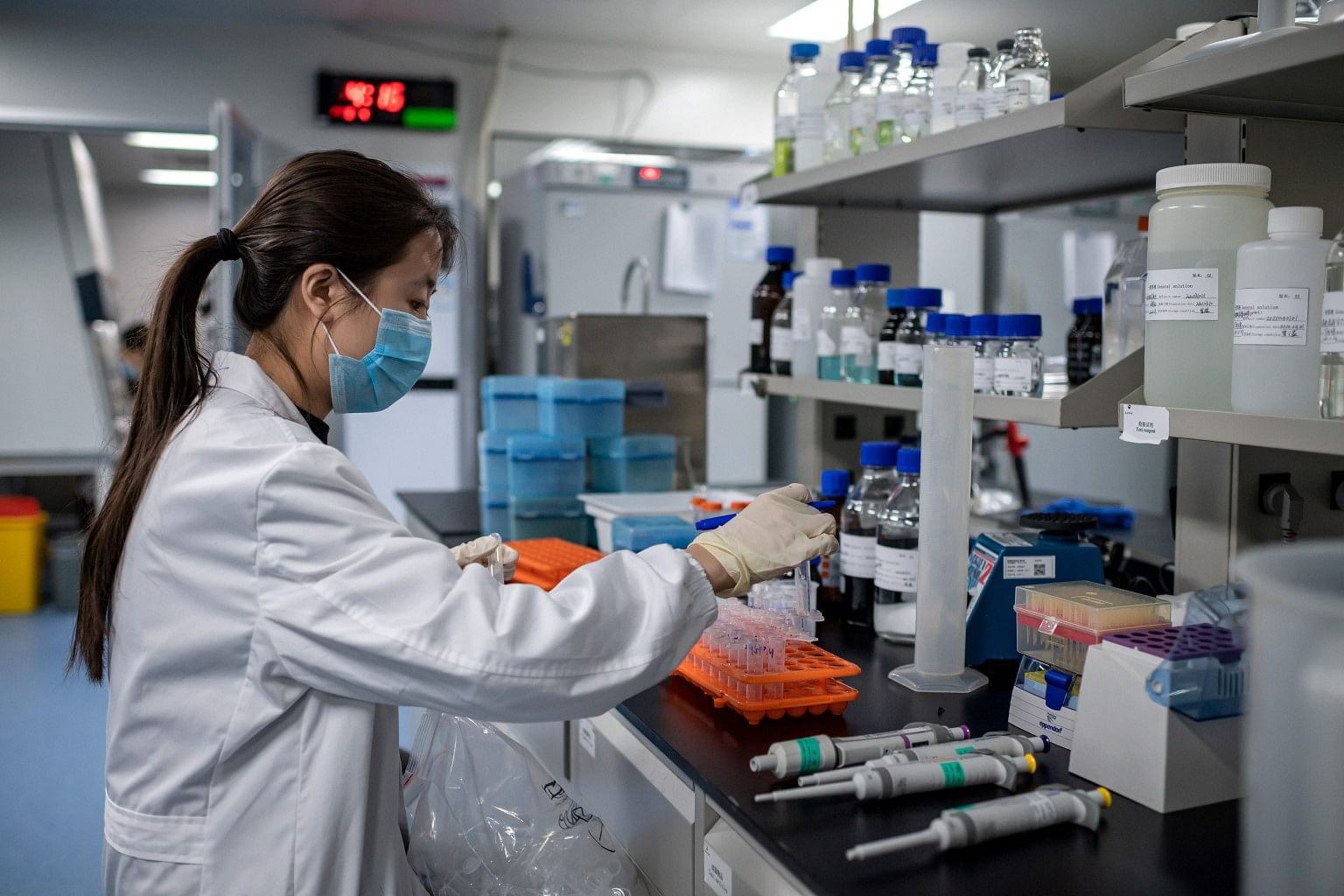Indonesia's major pharmaceutical companies and their foreign partners have joined the race to produce vaccines against the coronavirus that has killed nearly 1,800 people and infected more than 29,000 in the world's fourth-most populous nation.
State-owned Bio Farma, which was founded in 1890 and is the only vaccine maker in the country, is teaming up with Chinese biopharmaceutical company Sinovac Biotech to work on a vaccine that will be available in Indonesia early next year.
Dr Neni Nurainy, Bio Farma's research and development project senior integration manager, said the cooperation would quickly make available a vaccine in Indonesia, which is home to around 270 million people. "Bio Farma will source the active pharmaceutical ingredient from Sinovac, then formulate and do the fill-finish part," she told The Straits Times.
Dr Neni said Bio Farma's capacity for fill-finish - the process when the vaccine vials are filled and packed - for the Covid-19 vaccine is up to 100 million doses per year.
Sinovac is expected to carry out clinical trials in Indonesia in the third quarter of this year.
The company began the first phase of human clinical trials for the vaccine in mid-April.
Bio Farma, which exports vaccines to 147 countries including Singapore, can produce up to two billion doses of vaccines every year.
Apart from the cooperation with Sinovac, Bio Farma also participates in a consortium comprising Indonesian universities and research agencies led by the Jakarta-based Eijkman Institute for Molecular Biology to develop vaccines locally.
Indonesia's sole vaccine manufacturer hopes to secure a prototype vaccine from the institute in the first quarter of next year. After that, it will conduct clinical trials with a goal to produce the vaccines in the fourth quarter of next year.

Dr Neni noted that though local initiatives take more time, working on the development of the vaccine from the beginning means Bio Farma will enhance its capacity in vaccine making.
"This effort will support Indonesia's preparedness to anticipate the next pandemic, epidemic or outbreak that will require our independence in vaccine making," she said.
-
Key facts
Exports value in 2019:
US$465.5 million (S$649 million)
Imports value in 2019:
US$863.5 million
Number of players:
206 companies, of which 24 are foreign-owned
Sources of products:
76% local, the rest from overseas
Export destinations:
Its sole vaccine maker Bio Farma sells vaccines to 147 countries worldwide.
Key vaccines:
Include pentabio, which fights against diseases such as diphtheria and hepatitis B; measles vaccines; and BCG vaccines, which prevent tuberculosis.
Research and Technology Minister Bambang Brodjonegoro said last week that the ministry had earmarked five billion rupiah (S$500,850) to support the early stage of the vaccine development, and funding would be increased when necessary.
He hoped that the prototype vaccine would be ready by next March.
Meanwhile, Jakarta-listed Kalbe Farma Tbk inked an agreement last week with South-Korean biotechnology company Genexine to conduct clinical trials of a vaccine prototype being developed by a South Korean consortium of biotech companies and research organisations, such as Binex and the Korea Advanced Institute of Science and Technology.
The candidate vaccine, named GX-19, has been tested on primates.
Kalbe Farma president director Vidjongtius said the consortium will conduct the initial phase of human clinical trials this month in South Korea. The company hopes to join the second phase trial for efficacy and dose range in Indonesia, and it is in talks with the relevant authorities and research institutions on this, he added.
Kalbe Farma produces a wide range of pharmaceutical products, from prescription and over-the-counter drugs to biotechnology products.
The vaccines may be available for mass production in early 2022, and Kalbe will first get them from Genexine for distribution in Indonesia rather than manufacture the vaccines locally.
"This is a new venture for Kalbe, so we don't do (the vaccine making) alone due to the high risks," Mr Vidjongtius said.
Kalbe has a joint venture company with Genexine - Kalbe Genexine Biologics, which was set up in 2016 to conduct research and manufacture raw materials for biotechnology products.
Mr Vidjongtius said that in the long run, Kalbe will gradually produce the Covid-19 vaccines in Indonesia, eyeing not only the domestic, but also the regional market.
"We always look to Asean when talking about the (market) potential," Mr Vidjongtius said.
Kalbe is aiming to make the Covid-19 vaccines in Indonesia five years after they are first produced in South Korea.
In addition to vaccine development, Indonesia has also taken part in a World Health Organisation Solidarity Trial for Covid-19 treatment with 22 hospitals comparing the effectiveness of four different drugs, including remdesivir.
Persahabatan General Hospital spokesman Erlina Burhan said that the hospital will begin its trial soon, after securing its ethical committee's approval.











